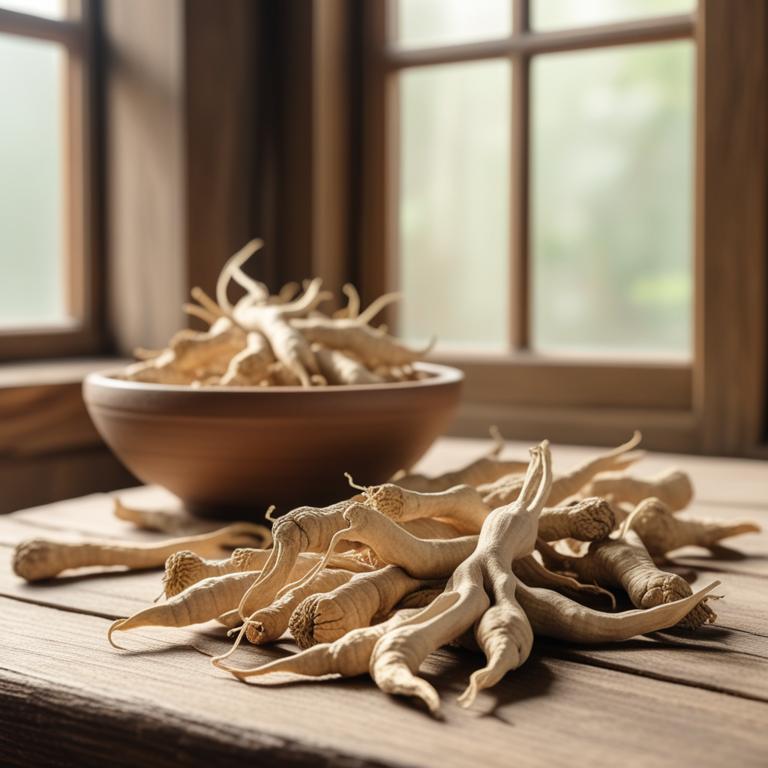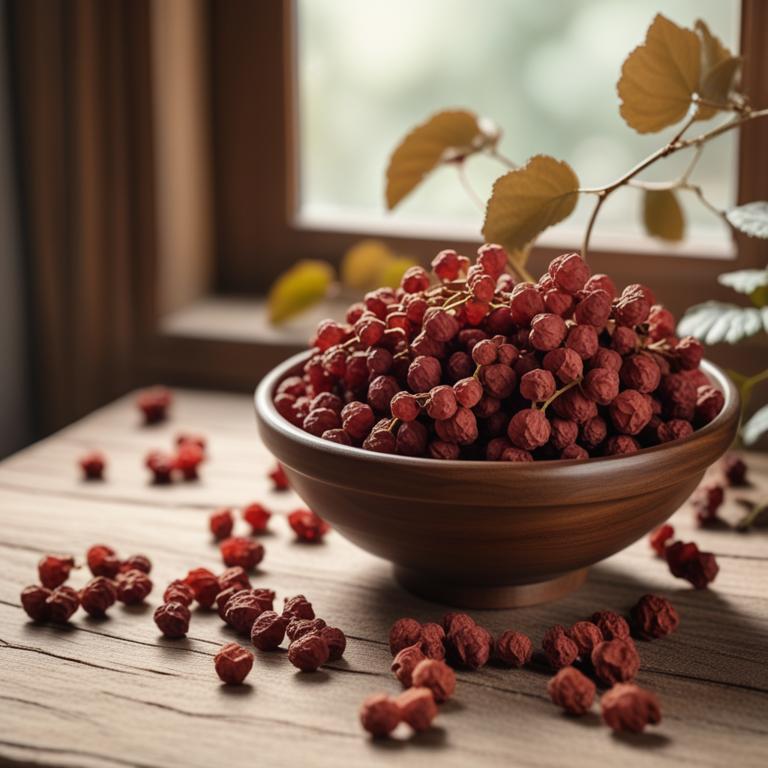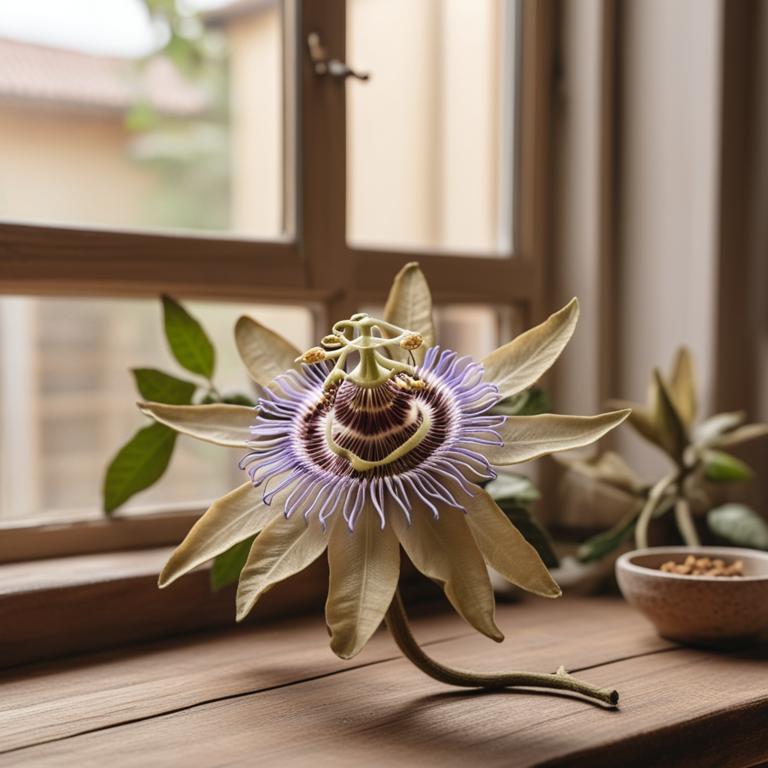Updated: Dec 1, 2024
Taste Loss: Causes, Medicinal Herbs, and Herbal Preparations for Prevention
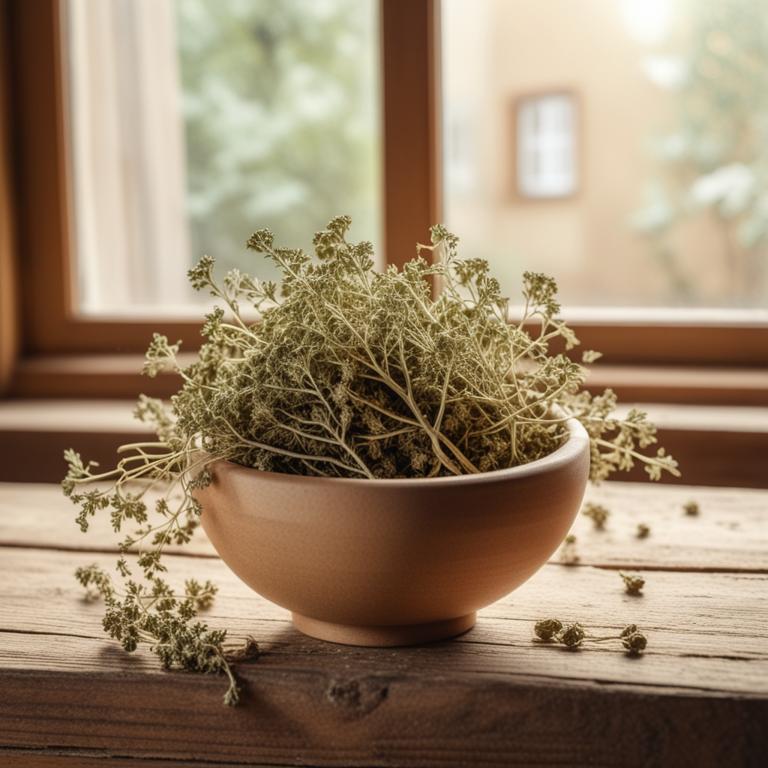
Losing your sense of taste can be a frustrating and isolating experience.
It's not just about not enjoying your favorite foods, but also about struggling to eat and drink properly, which can lead to weight loss, nutrient deficiencies, and even depression. Taste loss, also known as ageusia, can be caused by a variety of factors, including infections, medications, vitamin deficiencies, and even certain medical conditions such as diabetes or head injuries. Fortunately, some herbs have been traditionally used to help restore taste and smell.
For example, ginger has natural anti-inflammatory properties that may help reduce inflammation in the taste buds, while licorice root has been shown to stimulate saliva production, which is essential for taste. Another herb, called gotu kola, is believed to stimulate the taste buds and improve the sense of smell. These herbs can be prepared in a variety of ways, including teas, infusions, and tinctures. Drinking ginger tea or licorice root tea may help stimulate the taste buds, while taking gotu kola tincture may help improve your sense of taste and smell.
You can also try adding fresh ginger or licorice root to your meals to see if it makes a difference.
Table of Contents
- What are the causes of taste loss in individuals?
- What benefits can herbs provide for people suffering from taste loss?
- Which medicinal herbs are effective in treating taste loss?
- What are the most commonly used herbal preparations for individuals experiencing taste loss?
- What herbs should be avoided to prevent complications with taste loss?
- FAQ
What are the causes of taste loss in individuals?
The main causes of taste loss are often related to issues that affect the tongue, nerves, and glands.
One of the main causes is Sjogren's syndrome, an autoimmune disease that affects the glands responsible for producing saliva and tears, leading to dry mouth, which in turn causes taste loss. Tongue cancer, a type of cancer that affects the tongue, can also cause taste loss by damaging the taste buds on the tongue's surface.
Another cause is a medullary cyst, a small fluid-filled sac that forms on the tongue, which can put pressure on the taste buds and affect their ability to function. Glossopharyngeal neuropathy, a condition that affects the nerve responsible for carrying taste signals from the tongue to the brain, can also cause taste loss. Radiculopathy, a condition that affects the nerve roots, can cause numbness and tingling in the tongue, leading to taste loss.
Lastly, a lingual thyroid, a rare condition where the thyroid gland grows on the tongue instead of in the neck, can cause taste loss by compressing the taste buds and nerves on the tongue.
What benefits can herbs provide for people suffering from taste loss?
Using herbs can be a great way to bring back the flavor of food when taste loss is a problem.
These plants have been used for centuries to help people enjoy their meals again. One of the main benefits is that they can be grown in your own garden or easily found in stores, making them very accessible. They come in many different forms, such as teas, capsules, or even just fresh leaves to add to your food.
These herbs can help to stimulate your sense of taste and smell, which can be dulled by age, illness, or certain medications. Some herbs can even help to reduce inflammation and kill bacteria in the mouth, which can also contribute to taste loss. Using these herbs can be a natural and gentle way to improve your appetite and enjoyment of food. They can be added to a variety of dishes, from soups and salads to main courses and desserts, and can even be used as a garnish to add flavor and visual appeal.
By incorporating herbs into your diet, you can start to experience the flavors of your favorite foods again and enjoy mealtime more.
Which medicinal herbs are effective in treating taste loss?
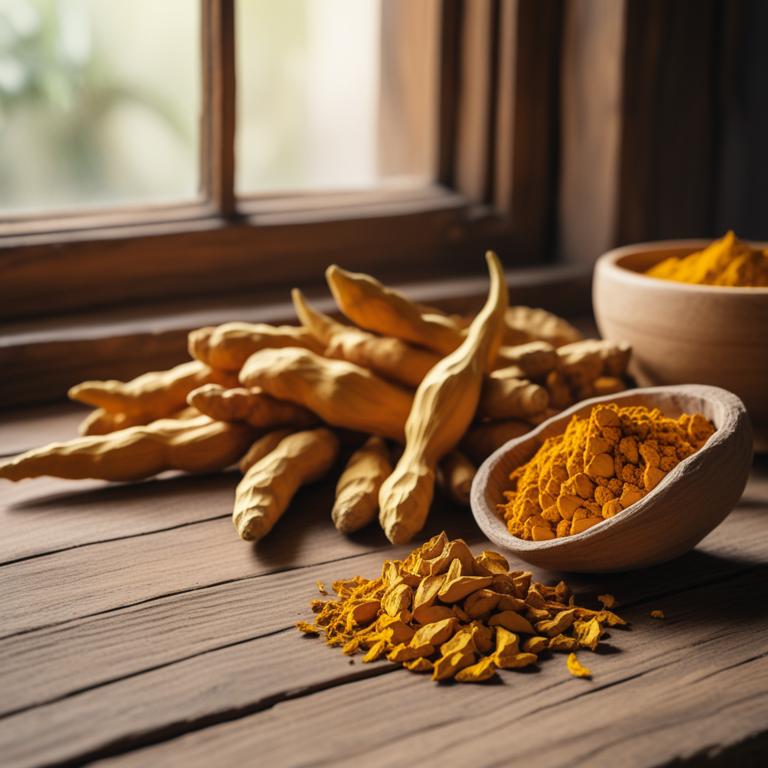
If you're experiencing taste loss, there are several herbs that can help stimulate your taste buds and get your flavor back on track.
One of these herbs is Curcuma longa, also known as turmeric. It contains a compound called curcumin, which has anti-inflammatory properties that can help reduce swelling in the mouth and throat, allowing your taste buds to function properly. Another herb that can help with taste loss is Zingiber officinale, or ginger. Ginger has natural anti-inflammatory properties that can also help reduce swelling in the mouth and throat, and it has a warming effect that can help stimulate your taste buds.
Licorice root, which comes from Glycyrrhiza glabra, is another herb that can help with taste loss. It has a soothing effect on the mouth and throat, and its natural compounds can help reduce inflammation and stimulate your taste buds. Piper nigrum, or black pepper, is a common spice that can help with taste loss. It contains a compound called piperine, which has anti-inflammatory properties that can help reduce swelling in the mouth and throat, and it can also help increase the absorption of other nutrients in the body, including the nutrients found in other herbs. Finally, Cinnamomum verum, or cinnamon, is an herb that can help warm up your taste buds and get your flavor back on track.
Its natural compounds can help reduce inflammation in the mouth and throat, and its sweet, warm flavor can help stimulate your taste buds and get your appetite back on track.
What are the most commonly used herbal preparations for individuals experiencing taste loss?
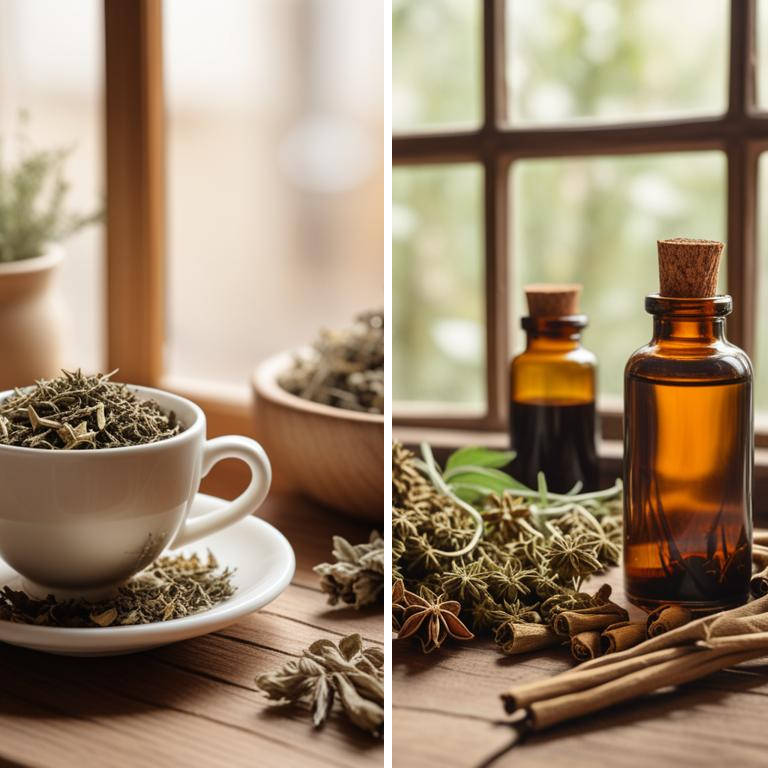
Taste loss can be a real problem, but herbal preparations can help.
A decoction is a good choice because it's made by boiling herbs in water, which helps to release their flavors and aromas. This makes decoctions great for people who have lost their sense of taste. Another option is tea, which is made by steeping herbs in hot water. This helps to release their flavors, and some herbs, like ginger and peppermint, are especially good at making the tongue feel more sensitive. Infusions are similar to teas, but they're made by steeping herbs in cold water.
This is a good choice for people who don't have access to a stove or for those who prefer a milder flavor. Tinctures are liquid extracts of herbs that are made by soaking them in a solvent like vodka or glycerin. They're great for people who have trouble swallowing pills or who need a concentrated dose of a particular herb. A salve is a topical preparation made from herbs and oils that's applied directly to the skin. While it may not help with taste loss directly, it can be used to treat conditions like a sore tongue or mouth that might be contributing to taste loss. Herbal preparations can be a good way to help with taste loss because they're often made from natural ingredients and are gentle on the body.
This makes them a safer choice than some other treatments.
Additional Resources:
What herbs should be avoided to prevent complications with taste loss?
If you have a problem with taste loss, you should be careful with certain herbs.
These herbs contain strong chemicals that can affect your sense of taste even more. For example, rosemary (Rosmarinus officinalis) and thyme (Thymus vulgaris) have compounds that can numb the tongue, making it harder to taste food.
Sage (Salvia officinalis) also has these kinds of chemicals, which can make your mouth feel numb and your taste buds less sensitive. Peppermint (Mentha x piperita) is another herb to watch out for, as its strong oils can also affect your sense of taste and make it harder to enjoy food. Even lavender (Lavandula angustifolia) can be a problem, as its fragrant oils can numb the tongue and reduce your sense of taste.
If you have trouble tasting food, it's a good idea to avoid these herbs or use them very carefully.
FAQ
Are there any specific herbs that can prevent taste loss?
Some herbs may help prevent taste loss.
For example, sage has compounds that can improve taste sensitivity. Ginger has also been shown to help stimulate the taste buds.
These herbs work by increasing the flow of saliva and the activity of the taste buds, which can help restore a person's sense of taste.
Is it safe to use herbal remedies for taste loss during pregnancy?
During pregnancy, some women experience a metallic or bitter taste in their mouth.
Some turn to herbal remedies like ginger and peppermint to help.
These herbs are generally considered safe, but it's essential to choose products from trusted sources and follow instructions carefully.
Are there any herbs that can reduce the frequency of taste loss?
Ginger has been studied for its potential to reduce taste loss.
It's believed that ginger's active compounds may help stimulate taste buds and improve taste sensitivity.
Some people have reported an increase in taste after consuming ginger, but more research is needed to confirm its effectiveness.
Can i combine different herbal remedies for taste loss?
Combining herbal remedies for taste loss might be tricky.
Some herbs can interact with each other, making it hard to tell what's working and what's not. If you're trying different remedies, start with small amounts and observe how your body reacts.
This will help you figure out what works best for you.
Related Articles
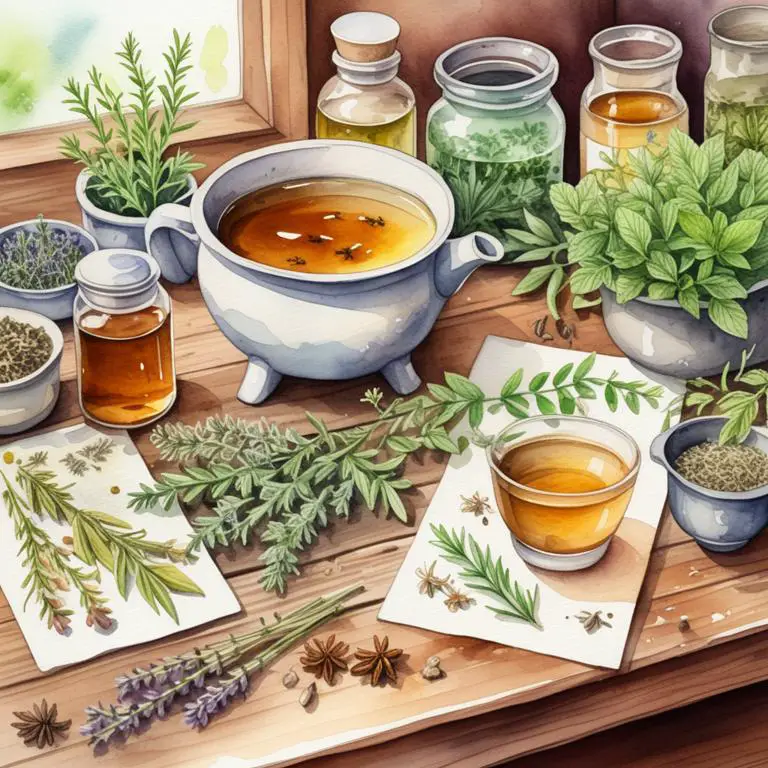
Earache Treatment with Natural Medicinal Herbs and Herbal Remedies
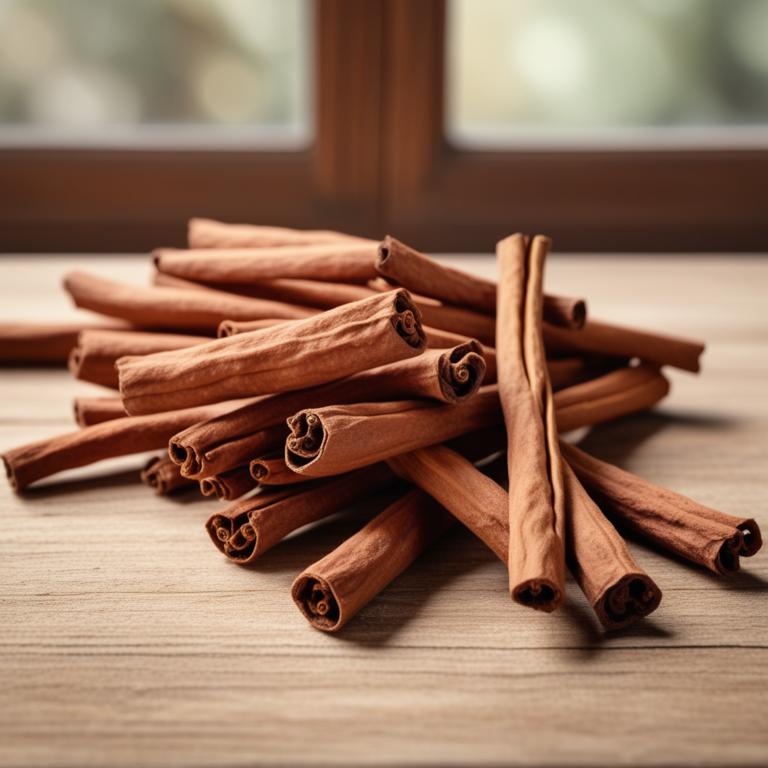
Breaking the Cycle of Bad Taste with Medicinal Herbs and Herbal Preparations
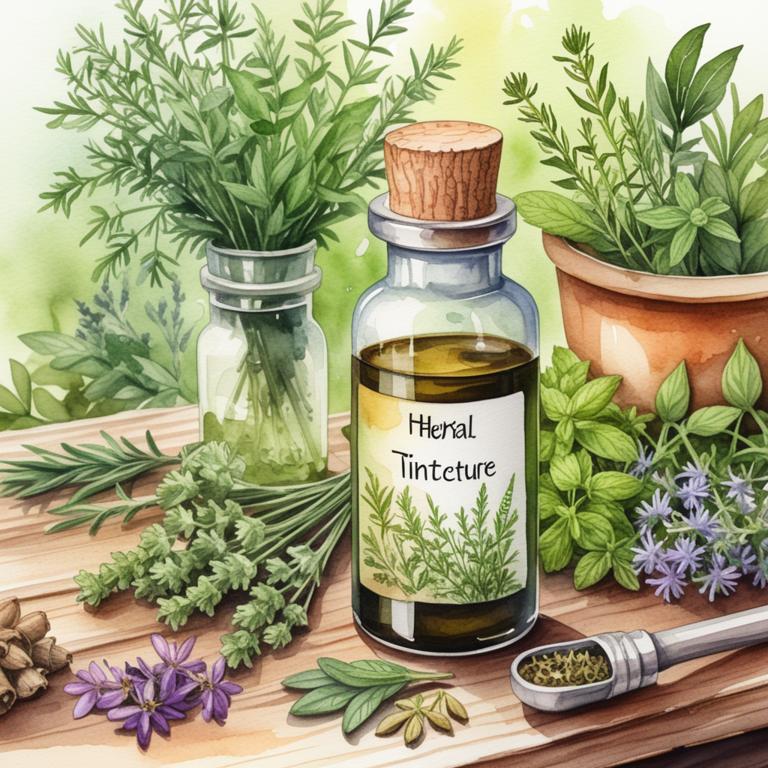
Restless Leg Syndrome: Understanding the Causes and Using Herbal Preparations
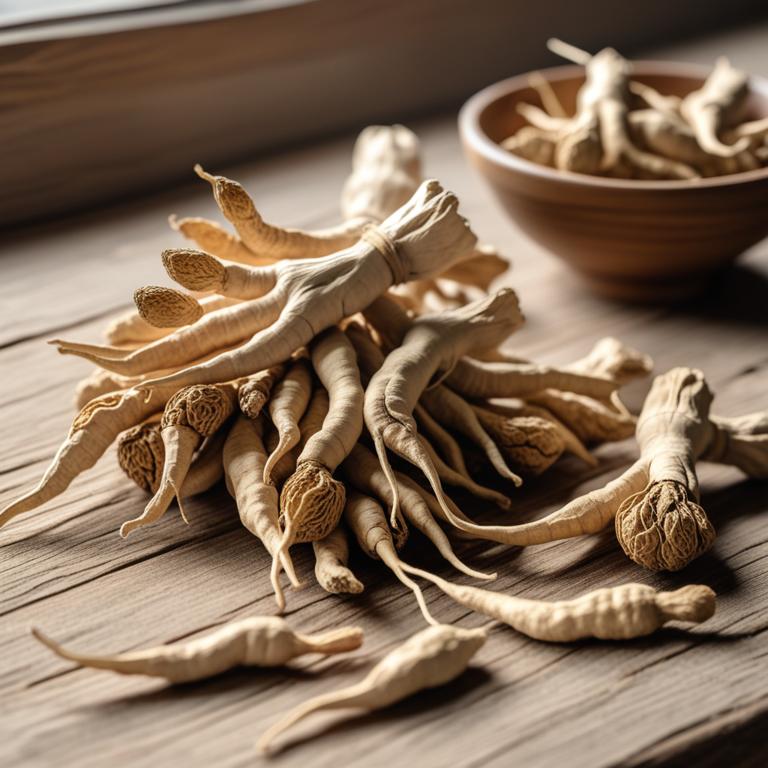
Overcoming Lost Voice: Causes, Medicinal Herbs, and Herbal Preparations for Fast Recovery

Nausea and Its Causes: Herbal Remedies, Medicinal Treatments, and Natural Cures
